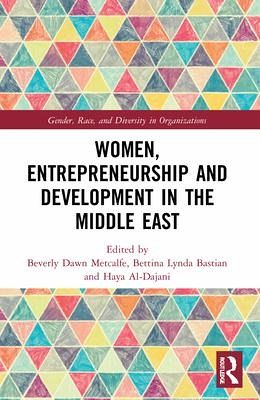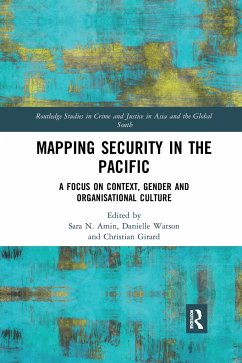
Women, Entrepreneurship and Development in the Middle East

PAYBACK Punkte
33 °P sammeln!
The Middle East was the region least impacted in the 2008 crisis, has investment systems markedly different to the West, is largely governed by Islamic Shari'a, and has varying forms of governance and institutional organization, which are not understood by many, nor how these systems shape entrepreneurial and industrial development. While the Middle East as a region has seen a small growth in entrepreneurship for women, and business scholarship on the Middle East has grown, there is no text in English that has brought critical insights from the Middle East together in a single volume.In examin...
The Middle East was the region least impacted in the 2008 crisis, has investment systems markedly different to the West, is largely governed by Islamic Shari'a, and has varying forms of governance and institutional organization, which are not understood by many, nor how these systems shape entrepreneurial and industrial development. While the Middle East as a region has seen a small growth in entrepreneurship for women, and business scholarship on the Middle East has grown, there is no text in English that has brought critical insights from the Middle East together in a single volume.
In examining women's entrepreneurship in the Middle East, this book aims to challenge Global North assumptions about the disempowering impacts of Islamic Shari'a and governance. Referring to the constraints of Islam on women's subjectivity and agency greatly misunderstands religious identity, of both men and women, and the way in which public administration and private sector institutions are organized in very different ways to Western regions. This timely text expands and adds new insights to the theorizations of women's entrepreneurship in the Middle East, through unravelling spatialized themes, and incorporates contemporary themes including: an Islamic science reading of women, work and venturing; changing families and entrepreneurship development; women managing social crises; Islamization, governance and women; Islamic feminist activisms and entrepreneurship; representations of women's entrepreneurship on social media; and women's collectives leading entrepreneurship via Facebook entrepreneurship.
It will be of interest to researchers, academics, and students in the fields of entrepreneurship, gender, work and organizations.
In examining women's entrepreneurship in the Middle East, this book aims to challenge Global North assumptions about the disempowering impacts of Islamic Shari'a and governance. Referring to the constraints of Islam on women's subjectivity and agency greatly misunderstands religious identity, of both men and women, and the way in which public administration and private sector institutions are organized in very different ways to Western regions. This timely text expands and adds new insights to the theorizations of women's entrepreneurship in the Middle East, through unravelling spatialized themes, and incorporates contemporary themes including: an Islamic science reading of women, work and venturing; changing families and entrepreneurship development; women managing social crises; Islamization, governance and women; Islamic feminist activisms and entrepreneurship; representations of women's entrepreneurship on social media; and women's collectives leading entrepreneurship via Facebook entrepreneurship.
It will be of interest to researchers, academics, and students in the fields of entrepreneurship, gender, work and organizations.














